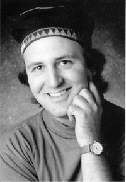Poetry: a Physical Thing
Two gifts this season. First, a duo of books by bpNichol: *Comix,* and *Meanwhile: The Critical Writings.* Then, another duo, including a book by Ashley Kahn on the making of John Coltrane's *A Love Supreme,* and the newly released deluxe edition of *A Love Supreme* (first issued 1965, recorded 1964), including the original recording, some alternate takes, and the only live performance of the entire suite, at the Antibes Festival in France in 1965, some 6 months or more after the original recording.
These gifts have me thinking about a topic I haven't considered in awhile, yet which is an important part of how I think about poetry and language, that is, as physical substance. Nichol always saw it as such, an embodiment that included sonic properties, vibrations that could be physically felt, and even in visual poetry, a rhythmic use of space that had a physical substance. In the Comix, quite commonly a letter is represented as a physical body, and language itself is a substance, constantly morphing, constantly *present.* In a way, this keeps his work real, real as a substance, in a way that works that take themselves as texts without physical embodiments, don't experience.
In the first essay of *Meanwhile* the text of the essay is a voice speaking to us, as though the content of the book has developed a voice to speak to the reader. Much of Nichol's work explores the possibility of poetry as physical substance in a variety of ways, and takes its cues from Stein, Dada, letter forms, music, and much more. As both a poet concerned with such matters, and a maker of books (literature become physical), I am drawn to this work.
So much of our criticism of poetry, our poetics as well, seems in recent decades to have assumed text as lacking body, and that seems unfortunate to me. Nichol's work is a necessary point of departure, and is still largely untapped, particularly in the USA, in terms of where it might lead.
And Coltrane? Music of course has its sonic vibrations, rather it IS sonic vibration, so that it touches our body in a real way, not just through the ears but as a sensation felt in the body. But to me Coltrane's work has been a metaphor for ongoing poetic exploration, always impeccably presented as devotion, intellect, passion, unceasing exploration. And while it's as *smart* as any music I know, it never relies strictly on its musical intelligence. It has to work as felt experience.
Further, the description of Coltrane's music as "sheets of sound" has specifically offered a kind of possibility for a poetry that might present a wall of language through which meaning breaks. When I first was considering that phrase, "sheets of sound," some 25 years ago, I remember sitting outdoors near a fountain where water overflowed a flat edged surface, flowing over in thin unceasing sheets, and that has stayed in my mind as a physical depiction of "sheets of sound" ever since. It has also, indirectly provided a title for an ongoing poem I have been writing for several years, several parts of which have been published in journals and two chapbooks, "Pushing Water," where I imagine languaging pushing through experience to become poetry.
I am still working through (and possibly always will be) ideas about poetry, embodiment, physicality, sound, poetic space, the space of the page, the space of the book, poetry as landscape, poetry as relating to landscape, and more.


0 Comments:
Post a Comment
<< Home